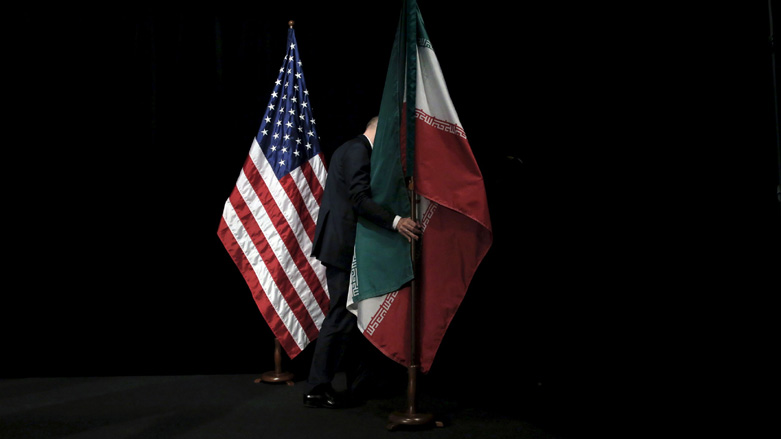US, Poland to host global summit on Iran, Baghdad’s position on Iran unclear

WASHINGTON DC (Kurdistan 24) – Secretary of State Mike Pompeo revealed on Friday that the US will host a global conference on Middle East extremism next month in Poland, and Iran will be a major focus of the meeting.
“I want to announce this morning that in a month from now,” Pompeo told Fox News, “the United States will host a global ministerial on Middle East peace and freedom and stability.”
It will involve “dozens of countries from all around the world,” Pompeo continued, including from Asia, Africa, Europe, North and South America, and “the Middle East of course.”
An “important element” of the security the US seeks for the region is “making sure that Iran is not a destabilizing influence,” Pompeo said, affirming that it will be “a big ministerial” and “an important part of our coalition-building effort.”
Formally called the “Ministerial to Promote a Future of Peace and Security in the Middle East,” the conference will be held in Warsaw from February 13 to 14, the State Department explained.
It will be “a forum for countries concerned about instability in the region to share their assessments and offer ideas on a better way forward,” the statement from the State Department continued.
“Why is the conference being held in Poland?,” Paul Davis a former Pentagon analyst and currently a Senior Fellow at Soran University, asked Kurdistan 24. “Why not some place in the Middle East?”
“I wish them luck,” Davis continued. “The Middle East hasn’t been stable or peaceful for at least 200 years.”
Combatting Iran has also been the focus of Pompeo’s nine-nation tour of the Middle East, which began on Tuesday and will continue into next week.
All nine countries on his itinerary—except one—have been identified by US officials as cooperating against Iran. The one exception is Iraq.
Pompeo’s tour started in Jordan, after which he arrived in Baghdad on Wednesday, before continuing onto Erbil, capital of Iraq’s semi-autonomous Kurdistan Region.
On Thursday, it was Cairo, where Pompeo delivered a speech at the American University of Cairo (AUC.) The university was founded in the wake of World War I, by an American religious group, with the original goal of converting Egypt’s Coptic Christians to Protestantism. That aim was dropped long ago, and AUC is now a secular educational institution, highly regarded and well-known throughout the Middle East.
At AUC, Pompeo explained that the US had “grossly underestimated the tenacity and viciousness of radical Islamism.” Indeed, President George W. Bush, under whom the war on terror began following the 9/11 attacks, believed that the conflict would be over by the time his presidency ended.
That was a decade ago, in January 2009, and the enduring conflict has been a source of significant frustration to both of Bush’s successors.
In his speech in Cairo, Pompeo singled out Iran as a particular danger, affirming that the Trump administration had “embarked on a new pressure campaign to cut off the revenues that the regime uses to spread terror and destruction throughout the world.”
In that speech, and subsequently, Pompeo praised Egypt, Oman, Kuwait, and Jordan, as well as Bahrain, Qatar, Saudi Arabia, and the United Arab Emirates for their efforts in working with the US against Iran.
Pompeo made no mention of Iraq, however.
Under the Obama administration, which Pompeo accused of “willful blindness” to the dangers posed by Iran, the US did virtually nothing to counter Tehran’s growing influence in Iraq, and, now, the leadership in Baghdad pursues an unsteady balancing act between the US and Iran.
The day after Pompeo’s visit, Iran’s Oil Minister was in Baghdad, where his counterpart there affirmed that Baghdad would honor an existing agreement for the joint exploitation of oil fields along the border between the two countries, which contravenes the US sanctions regime against Iran.
The US has given Iraq an energy-related waiver from those sanctions. That waiver expires in March, although analysts are skeptical that Baghdad won’t just ask for another extension then.
The Kurdistan Region is different, however. It does not import oil or otherwise engage in proscribed trade with Iran, as the KRG’s representative to Washington, Bayan Sami Abdul Rahman, who was in Erbil for the talks with Pompeo, told Kurdistan 24.
